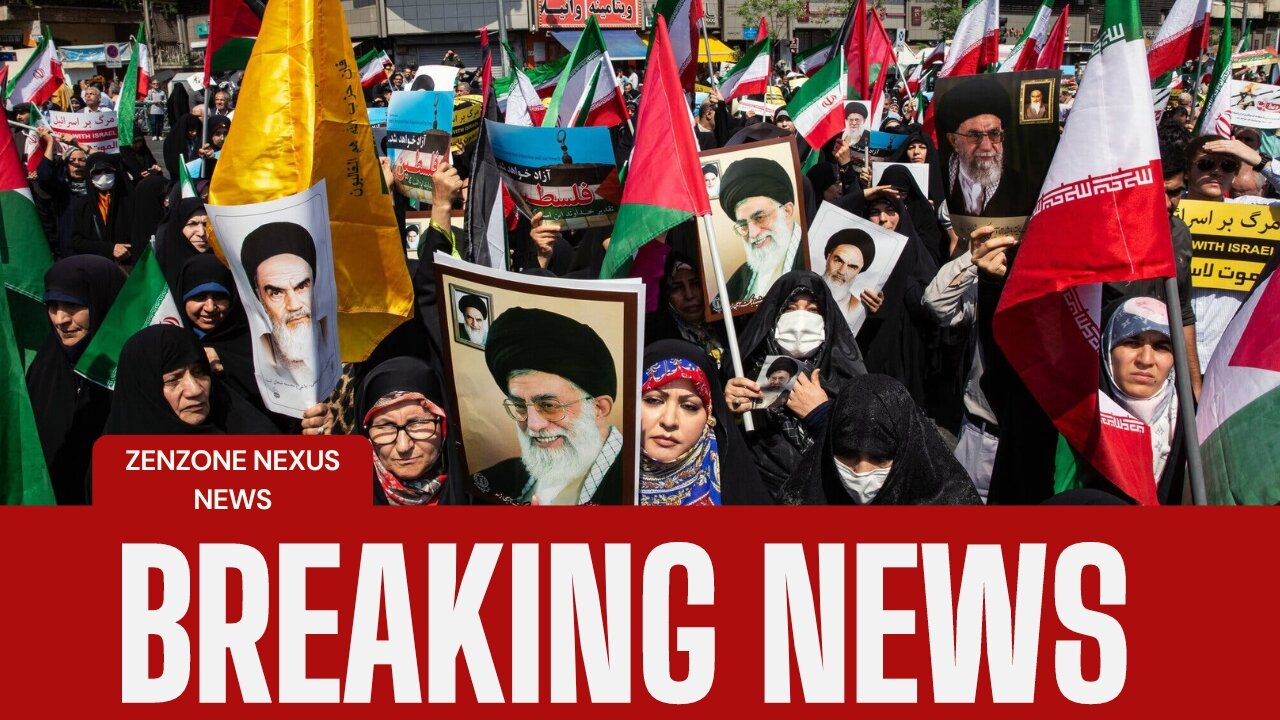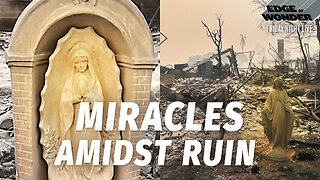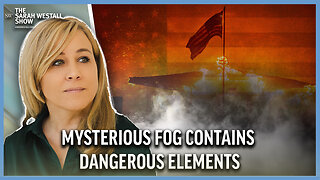Premium Only Content

Muted Reactions to Israeli Strikes on Iran Hint at De-Escalation|Live Updates:
Muted Reactions to Israeli Strikes on Iran Hint at De-Escalation|Live Updates:
Description: Join us for a deep dive into the muted reactions surrounding the Israeli strikes on Iran. Explore the potential indicators of de-escalation and gain insights into the geopolitical implications. Stay informed with our live updates and analysis.
#IsraeliStrikes #Iran #DeEscalation #Geopolitics #LiveUpdates #MutedReactions #GlobalSecurity #MiddleEastTensions #InternationalRelations #CurrentEvents #YouTubeLive
Israel had vowed retaliation for Iran’s attack last weekend, but the strikes reported overnight were limited, and Iran downplayed them.
The Israeli military struck Iran early on Friday, according to two Israeli and three Iranian officials, in what appeared to be Israel’s first military response to Iran’s attack last weekend but one whose scope, at least initially, appeared to be limited.
The Iranian officials said that a strike had hit a military air base near the city of Isfahan, in central Iran. Initial reaction in both Israel and Iran was muted, which analysts said was a sign that the rivals were seeking to lower the temperature of their conflict. World leaders, who for nearly a week have urged Israel and Iran to avoid sparking a broader war in the region, called for both sides to de-escalate tensions on Friday.
The Israeli military struck a Syrian air defense site in southern Syria with missiles early Friday, causing material damage, though no casualties were reported, according to Syrian state news media.
Syria’s official news agency, SANA, provided no other details and Israel did not comment on whether it was responsible for the attack, in keeping with its usual practice.
Jordan will not allow its airspace to be violated by either Israel or Iran, Jordan's foreign minister told his Iranian counterpart in a phone call, the official Jordanian news agency, Petra, reported.
Jordan lies between the two enemies, and played a key role in helping shoot down the barrage of missiles and drones Iran fired at Israel on Saturday.
Daily life appeared to return to normal in Isfahan on Friday, according to Iranian state news media and a resident who was interviewed, hours after Israel’s attack on a nearby military base continued the cycle of strikes and counterstrikes between the two countries.
But tensions from the overnight attack reverberated through the city, and some residents described the threat of full-fledged war as crippling — despite analysts’ assessment that both nations were trying to avoid further escalation.
Mehrdad, 43, an engineer from Isfahan, said the latest retaliation left him and his pregnant wife feeling stressed and unwell. He asked that his last name not be used for fear of retribution.
“The future of this country concerns me,” he said. “I believe nothing good is expected.”
Though he said that the city had returned “back to its normal” and reactions from officials were muted — which he believed was to help make people feel at ease — many residents remain scared after a stressful night of explosions.
For the first six months of the war between Israel and Hamas, Iran’s involvement in fighting had been limited to its proxies, including the Lebanese militant group Hezbollah and the Yemeni Houthi militia. But after Iran’s first direct strike on Israel last weekend, Mehrdad said, “things are coming to the surface.”
He hoped that diplomatic mediation would put an end to the threat of war, and he worried that the county’s infrastructure would be “ruined” by further Israeli attacks.
“Our economic situation is awful. We have 50 percent annual inflation,” he said. “Now guess what would happen if the war materialized. What would happen to our living conditions in this country?”
Mahsa, 34, an accountant from Isfahan who also asked that her last name not be used for fear of retribution, described a tense atmosphere of fear and instability. The economy is often the main topic of conversation when people gather, she said, and many are worried about the consequences of a wider war.
“When Iran attacked, we were all worried and we really didn’t know what to expect,” she said, describing the cycle of retaliation between Israel and Iran as a “show game.”
“Of course, after this Israeli attack, the direction of the game will be determined,” she added. “Either a full-scale war, or the end of this line, or just threats.”
The distress is crushing. Mahsa said her mental health had deteriorated, describing an instance last week when she broke down sobbing in the middle of the street for seemingly no reason while on a run. Dreams seem “more impossible to achieve, day by day,” she said.
“We don’t have much mental energy left,” she added.
-
 51:58
51:58
PMG
8 hours ago $2.01 earned"Can the Government Learn from Elon Musk’s 70% Labor Cut? A Deep Dive into Inefficient Agencies"
31.7K -
 6:39:15
6:39:15
Amish Zaku
8 hours agoRumble Spartans #10 - New Year New Maps
28.9K2 -
 1:04:58
1:04:58
In The Litter Box w/ Jewels & Catturd
1 day agoNo Tax On Tips! | In the Litter Box w/ Jewels & Catturd – Ep. 722 – 1/17/2025
149K32 -
 5:35:39
5:35:39
Dr Disrespect
14 hours ago🔴LIVE - DR DISRESPECT - WARZONE - CRAZY CHALLENGES
170K33 -
 1:16:30
1:16:30
Edge of Wonder
10 hours agoLA Fire Updates: Miracles Amidst the Devastation
44.4K14 -
 54:54
54:54
LFA TV
14 hours agoBanning Mystery of the Ages | TRUMPET DAILY 1.17.25 7pm
37.9K8 -
 1:47:13
1:47:13
2 MIKES LIVE
8 hours ago2 MIKES LIVE #168 Open Mike Friday!
32.5K3 -
 1:05:11
1:05:11
Sarah Westall
9 hours agoMysterious Fog and California Wildfires Both Contain Dangerous Elements w/ Dr Robert Young & Hazen
53.1K7 -
 1:40:48
1:40:48
Mally_Mouse
8 hours agoLet's Play!! -- Stardew Valley pt. 23!
28.6K -
 16:21
16:21
China Uncensored
11 hours agoCan Anything Stop the Tiktok Ban?
39.6K13